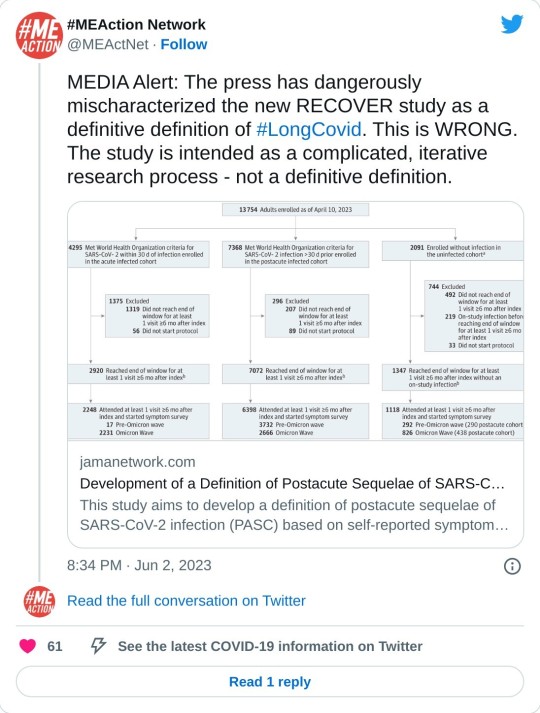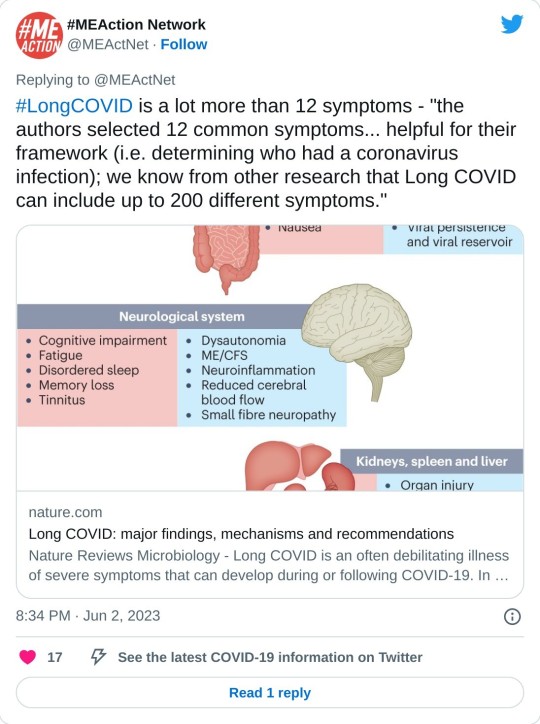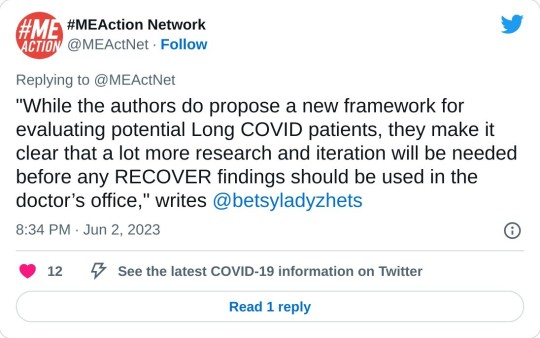#science advocacy
Explore tagged Tumblr posts
Text
The prospect of an even more ideologically driven Trump administration slashing budgets and mass-firing federal staff has given America’s scientific community a sort of collective anxiety attack. “We all feel like we have a target on our backs,” said one National Oceanic and Atmospheric Administration scientist, who added that agency staff are already seeking to “pivot” by replacing mentions of the climate crisis with more acceptable terms such as “air quality”.
“My god, it’s so depressing,” said another federal scientist about the incoming administration. A doctoral candidate, when asked about entering the workforce under Trump, simply puffed her cheeks and groaned. “If someone offered me a departmental position now, I’d jump,” said one Nasa researcher. “It’s hard, particularly for younger people. Hopefully we will survive it all.”
Trump – through his alteration of hurricane maps with a Sharpie pen, staring with uncovered eyes at a solar eclipse and suggestion that disinfectant injections could cure Covid-19 – is seen by many here at the meeting as a catalyst of scientific contrarianism.
This has been underscored by the nomination of Robert F Kennedy, who holds an array of conspiracy theories about vaccines, wind farms and chemtrails, as the nominee for the US’s new health secretary, as well as Trump’s promise this week to cast aside environmental reviews for “any person or company investing ONE BILLION DOLLARS, OR MORE, in the United States of America”.
But scientists in the US face a broader crisis beyond the next president, amid a swirl of misinformation and declining trust in the profession among the American public. Overall trust in scientists has fallen by 10% since the pandemic, Pew polling has shown, with a growing partisan gap emerging in how science is viewed; nearly four in 10 Republicans now say they have little to no confidence in scientists acting in the public’s best interests.
“When we get that kind of polling data, it is concerning,” acknowledged Lisa Graumlich, a paleoclimatologist and the current AGU president. Gone, it seems, are the halcyon days of celebrity 19th-century scientists such as Charles Darwin and Alexander von Humboldt, or even the reception to the polio vaccine in the 1950s, which was greeted with ringing church bells, with its inventor, Jonas Salk, routinely being greeted with applause and handshakes when he was seen in public.
By contrast, Anthony Fauci, the face of the US response to the Covid pandemic, requires round-the-clock security protection due to ongoing death threats, even after his retirement. Climate scientists and meteorologists, too, have faced threats and harassment.
“The conspiracy theories are out there, the misinformation is there,” said Graumlich. “Social media engines and the algorithms can take a person that isn’t necessarily prone to a conspiracy mindset and have them end up in this rabbit hole of misinformation.”
Some researchers think scientists should adapt to this hyper-partisan environment by sticking to unadorned facts, rather than anything that could be seen as campaigning. “We have been come to be seen as just another partisan lobbying group,” said Ken Caldeira, a climate scientist.
“I want us to get back to a point where scientists are seen as the establishers of facts rather than arguing for policy. We need to get back to a situation where we have a shared set of facts.”
Others are determined to press the case for science to guide decisions, if not in the White House then with Congress, which previously thwarted major Trump-demanded cuts to the Environmental Protection Agency and Nasa’s Earth science work.
Jay Famiglietti, a hydrologist at Arizona State University who has come to AGU meetings since 1989, attended this year’s event to reveal terrifying findings about the loss of available freshwater around the world, due to the climate crisis and agricultural practices.
“People like me who are experts need to step up and say, ‘I think this should be done,’” said Famiglietti, who has tangled with a family member about Trump and has even taken to switching Fox News off from the TVs in his local gym.
“I mean I am not going to chain myself to a wellhead but I’m going to make sure the right people in Congress, in Washington, know about it,” he said. “Some people might want to jump off a bridge if they think about the next few years but I don’t think we need to go into a shell or be overly careful. We need to choose our words well, know our audience, but I’m very much in support of full speed ahead.”
4 notes
·
View notes
Note
If a substance has a physiological effect, it will have side effects. If it doesn't list side effects or claims not to have them, then, simply, it hasn't been studied enough to know what the side effects/drug interactions are.
If it has effects, it has *effects*.
When you say you're anti-CAM what does that mean? Like what does CAM mean in that context? I genuinely haven't seen that acronym before and I'm assuming you aren't anti-camming as in like the form of sex work
Complimentary and Alternative Medicine.
I am capable of turning off my inner annoying atheist, I am incapable of turning off my inner annoying quackwatcher.
I have had real life fights with people I genuinely love about this and I do not regret it. I will absolutely not regret shitting all over someone's $500 herbalist certification.
23K notes
·
View notes
Text
about me
Hello, my name is Jon-Paul (but you can call me JP), I’m a radical civil rights activist from the UK, I started using Tumblr a few years ago with the single aim of sharing Undertale theories, I did it because at the time I predominantly used Reddit and after seeing the engagement such content got here compared to the like… 3 upvotes I typically got over there, I decided to start posting here. Since then I have left Reddit permanently due to finding it a very toxic environment to be in, as I had done with Twitter and Amino previously, however in the present I remain active on Tumblr, BlueSky, Discord and TikTok.
In the present, I’m a lot more engaged with my work on the political side, I’ve helped with organising protests and recruitment for various groups and do have long term goals I wish to achieve. I do however continue to show an interest in a lot of entertainment such as games and TV that I will continue to engage with a lot when I’m not working. If anyone wishes to ask me something about a piece of fiction I will likely respond to it, I’ll also blog about things I like when I just feel like it. Expect a somewhat diverse range of stuff alongside political work.
I’m creating this at the moment that I am because I feel I’m entering a new chapter in my life, a difficult experience back in July 2024 damaged my morale and mental health on a level that ended up causing a lot of problems for my work and College performance as well as for my own personal relationships and health, but as all that has reached half a year ago, and my mind has gotten more clear. I am prepared to give everything my all. There are people I care about, many of whom are in situations far beyond my control, some of whom I am currently unable to interact with due to my own mistakes and must wait for, and the best I can really do for any of them is continue doing what I’m already doing. Continue fighting, staying patient, keeping hope.
Either way, that’s enough about the boring personal stuff, here’s just a list of interests:
- gaming
- Science
- Animation
- TV
- Politics
- History
- theorising
Some other random info:
- Asexual
- Autistic
- Furry
- am making a Tesseract out of sea glass for a College project because I can
#information#pinned info#personal#politics#uk politics#british politics#undertale#undertale theory#tv shows#tv series#ace#asexual#activism#advocacy#civil rights#gaming#video games#science#space#history#leftism#left wing#animation#autism#pinned post#furry#fan theory#scientific theory#radicalism#announcement
67 notes
·
View notes
Text
thinking this labor day about all the athletes in women's sports who didn't have a stable league, who were only making decent money from a spot on their national team, who had to fight to get even a fraction of what they deserve. who spent their prime without a club league or the infrastructure to propel the sport. who came of age after title 9 in the usa [forcing schools to fund women/girls’ sports], the ones who fought for cbas and are only seeing big change at the end of their careers or after their careers concluded. who didn't have the media attention before, but are now showing just how much they can sell out stadiums and arenas. the players who played year round because overseas teams paid athletes what they were worth. athletes who endured and reported harassment but the league never took appropriate action. athletes who never had the media attention or ability to monetize their talent but who had careers that were just as impressive as the stars of today. who did it without the help of the science, technology, and medicine we have today. who set records with less support and fewer games in a season, which will be broken by kids who have had personal trainers since high school. athletes who played great games that are no long available to view, their talent no longer archived and accessible for young or new fans. athletes who still don't have a league or are just getting one in 2024. athletes who took it upon themselves to create change for which they will never reap the full rewards.
#this is across the board stuff#it's about the wnba the nwsl the pwhl and all the preceding leagues across the sports#im not athletic or good at sports but i do love the social sciences#it is the natural evolution of sport but there are lost generations#like in soccer abby wambach marta christine sinclair none of them had a club league in their prime#like cynthia cooper is the only other true guard that won mvp and she won it twice but you can't watch games from back then#women's hockey in north america is a newer story and perhaps more complex but still the stories of going from chartered planes in college#to not that in what is supposed to be a professional league#this is one of the reasons why i think we need more athlete's memoirs#like of course i want the juicy off court stuff i'm human but the amount of organizing and advocacy that athletes have had to do#nwsl#wbna#pwhl#and i want to be clear i'm not subtweeting specific players here in a mean way it's just facts#that if you are playing more games per year in your prime and you have more advanced knowledge#about recovery and training you have more opportunities to raise the bar#i actually get emo about this stuff all the time but i figured it's topical today
77 notes
·
View notes
Text
Autism is genetic, not caused by vaccines or environmental factors. Fucks sakes, I am going to start biting.
#actually autistic#autism community#autism awareness#autism acceptance#autism advocacy#late diagnosed autistic#autistic adults#anti vaxxers go die#trump supporters go die#republicans fuck off#science deniers fuck off
35 notes
·
View notes
Text





#covid-19#covid 19#sars cov 2#covid#Long covid#JAMA Network#Development of a Definition of Postacute Sequelae of SARS-CoV-2 Infection#Tanayott Thaweethai PhD#Sarah E. Jolley MD#Elizabeth W. Karlson MD MS#Covid-19 data journalism#Betsy Ladyzhets#Researcher#Machine learning/AI#Research and Advocacy#Hannah Davis#Patient Led Research#MEAction Network#Media#Health and science#Health and science reporting
32 notes
·
View notes
Text
The Urgency of National Wildlife Week: A Call to Action for Biodiversity Preservation

View On WordPress
#advocacy#afforestation#afforestation areas#biodiversity#Buddy System#Citizen Science#citizen scientists#City Nature Challenge Events#Climate Action#climate change#Community Empowerment#Community Engagement#conservation#conservation awareness#Conservation Efforts#conservation initiatives#Eco-Quest Projects#ecological balance#Ecological preservation#Ecological Restoration#ecosystem health#Ecosystem Restoration#endangered species#Energy Use#environmental awareness#environmental challenges#environmental conservation#Environmental Education#environmental impact#Environmental Management
5 notes
·
View notes
Text
Magenta 🤬
#my state is complaining about not having enough customers for psilocybin treatments#well as someone that heavily advocated for it to be legalized because of research and science lemme tell you why:#you gatekept your whole client base via outpricing them because you don't want to serve people with medium to low incomes#you only want rich people as your clients when the majority of people who could legitimately benefit from this treatment#are one paycheck away from homelessness or have to choose between an 800-1200 dose or buying groceries for the next month for their families#now look I get it you gotta get your cake and eat it too#but that's no excuse for isolating a large client base just because you're offended that poor people with mental health issues exist#if you want to keep this shit rolling and not have the state overturn anything#make it more accessible to people that truly need it and I'm telling you word of mouth travels fast#you'll get more clients more advocacy and more investment into research#by giving people an opportunity#and making them feel included in the process#thats what yall did when you started the petitions to get lawmakers to take the benefits seriously#so what changed?#what turned you into greedy cunts?#oh yeah money and again you're offended poor people exist#y'all know too folks will just go to a dealer they know and get it for cheaper right?#i mean whats the point in paying 3 to 5k for a special “retreat” where you pay an additional 1k to 2k for 3 doses#when johnny boy down the street can hook you up with 10 doses for 100 bucks and a bag of chips?#and btw guys wtf happened to all that money that was supposed to go to creating state of the art mental health clinics and facilities#when measure 110 got passed that decriminalized drugs?#no one has an answer???#hmmm#it's no wonder we are near dead last in mental health in this country#its like i said in the meeting: you guys love to profit off the suffering of others#magenta#magenta is my vent word
2 notes
·
View notes
Text
tua having a nonverbal autistic character is so cool their next step in autistic rights and representation should be publicly sacrificing tom hopper
#i love harlan so much actually#the umbrella academy#harlan#btw if you didnt know tom put his autistic child in aba which is an abusive practice that traumatises and hurts autistic people#its often compared to conversion therapy because it is pretty much the same science behind it#autistic advocacy groups protest very heavily against it#hes also said bullshit about autism being caused by diets#i despise that man#sorry for getting serious in the tags of a jokey post#but everytime i wanna bring this up i always realise people just dont k ow about it#tua
11 notes
·
View notes
Text

youtube
#pbs#nature#naturecore#rewilding#environmentalism#environmental#environmental activism#environmental justice#environmental science#environmentallyfriendly#environmental impact#environmental awareness#environmental action#environmental advocacy#ecofriendly#nature video#nature is everything#nature is awesome#tumblr recommendations#recommend#recommendation#youtube#youtube content#youtube recommendations#youtube video#video recommendation#youtube link#video link
3 notes
·
View notes
Text
ive had such a good semester since i transferred, turns out good school/professors/disability department = good grades
#who would have thought#uni#university#online university#library science major#patient advocacy#studyblr#studying#study blog
3 notes
·
View notes
Text
Does anyone know of a letter campaign happening already that they could link?
So uhhhh. This isn’t good.

For context, NIH study sections review and approve grant and fellowship funding for federally funded health and medicine research—aka, most of the health research that’s done in the United States. This includes research funds as well as salaries and funding for student researchers/pre and post docs at most US universities.
If you’re American, PLEASE contact your representatives about this. This has the potential for a devastating impact on health research not just for the US, but for the entire world. I expect we’ll have more information in the morning, but for now, I’d just urge them to do whatever they can to get this reversed ASAP.
1K notes
·
View notes
Text
I have some problems with My 600 Pound Life. Not just from the fat person perspective, but also from the data science perspective and the mental health advocacy perspective. It gives non-600 pound viewers a skewed perspective of how much weight loss should be expected. While the intention is good, it could be executed better.
#my 600 pound life#weight loss#diet#calories#fat#data science#data#small data#mental health#mental health advocacy#ADHD#anxiety#depression#PTSD
0 notes
Text
January Petition Links

We're almost done with January, and I wanted to share petition links I've come across. Although the environmental future in the U.S. looks cloudy, we can still advocate!!
Pledge to Say NO to Plastic Water Bottles: reduce the impact of water bottle pollution.
Help Save Marine Life: There's a slim future for sea turtles. Various tragedies are rapidly decreasing sea turtle numbers, shifting them into the endangered category. Use your voice to speak up for sea turtles and many other endangered biodiversity.
Support Maryland's Bottle Bill: The Bottle Bill will reduce litter and plastic pollution. There will also be an increase in recycling beverage containers.
Protect the Health Of Our Waterways from Coal Pollution: Hold the big banks accountable. Well-known banks such as Wells Fargo, the Bank of America, Citigroup, and many more fund delay coal power. By signing this petition, you can possibly shut these big coal plants down. As a result, our waterways will restore their health.

#envpetitionlinks#biology#environmental science#marine biology#conservation#ecology#ecosystem#ecosystems#enviromentalism#environmental#seadifferently#environment#ocean#marine biodiversity#marine life#space marines#sea life#underwater#sea creatures#sea turtle#pollution#plastic recycling#save the turtles#waterways#petition links#petition#advocacy#environmetalists#environmental justice#environmental awareness
1 note
·
View note
Text
When Science Centre Lights Go Dark: A Community’s Loss Beyond the Building
When Science Centre Lights Go Dark: A Community’s Loss Beyond the Building
Fighting for the Heart of a Community In recent months, I’ve found myself writing two heartfelt letters to our provincial government representatives. The first was a plea to reconsider their decision about relocating the Science Centre. The second came after receiving their response—a politely worded but firm confirmation that the relocation plans would proceed as announced. As someone who grew…
#community advocacy#community heritage#community impact#cultural landmarks#education equity#neighborhood development#public institutions#science centre closure#STEM education#urban development
0 notes
Text
Rare (Part II): The Lab-Grown Revolution
Let’s take this conversation up a notch because it’s not just about how meat is cooked (or undercooked, if we’re being honest). No, this is bigger—existential, even. It’s about the fundamental stupidity of resisting progress when science has handed us the golden ticket to ethical, sustainable, and technologically perfect meat. Yes, I’m talking about lab-grown meat, the one thing that should unite meat-eaters and non-meat-eaters alike, but somehow manages to attract opposition from every corner of the culinary and ideological spectrum.

Meat Eaters: Primitive Loyalty to Tradition
Let me start by addressing my fellow omnivores. I’m a meat-eater. I’m human, and like most of humanity, I’ve inherited an evolutionary predisposition to enjoy the taste, texture, and smell of cooked meat. It’s primal, it’s ingrained, and I make no apologies for it. But here’s where I draw the line: when meat-eaters cling to the idea of killing animals as though it’s some sacred rite of passage. As if stabbing a cow and carving it into steaks is essential to our identity as humans.
Newsflash: it’s not. You don’t need to worship the blood and guts of traditional meat production to be a meat-eater. If lab-grown meat tastes the same, feels the same, cooks the same, and is molecularly identical to what we’ve been eating for millennia—without killing a single sentient being—why wouldn’t you jump at the opportunity? Oh, right, because “ooga booga, real meat come from real animal.” Congratulations, you’ve just made a cannibal look rational.
Vegans and Vegetarians: A House Divided
Now, let’s talk about the other side of the aisle. There’s a subset of vegans and vegetarians who get it—who see lab-grown meat for what it is: the ultimate compromise, a way to enjoy the sensory experience of meat without the moral or ethical baggage. But then there’s the other subset: the purists, the moral absolutists who oppose lab-grown meat on the grounds that it “still perpetuates the idea of eating animals.”
Let me break this down for you: lab-grown meat isn’t an animal. It’s meat without the suffering, the factory farms, or the environmental devastation. It’s the answer to your prayers, but because it still looks and tastes like the thing you’ve sworn off, you can’t handle it. That’s not morality; that’s dogma. You’ve turned your ideology into a prison, and now you’re standing in the way of the single greatest leap forward for animal welfare.
Capitalists and Industry: Stagnation for Profit
And then there’s the meat industry itself—a bloated, lumbering dinosaur that refuses to evolve. These are the same people who’ll tell you lab-grown meat isn’t “real” while pumping traditional meat full of hormones, antibiotics, and God-knows-what else. They’ve built their empires on the backs of industrial-scale slaughter, and they’re terrified of a future where they can’t profit off mass suffering.
Let’s be real: the technology for lab-grown meat is here. It’s been here. But the meat industry doesn’t want to adopt it because it threatens their bottom line. Transitioning to lab-grown meat would require rethinking supply chains, retooling factories, and—heaven forbid—investing in innovation. Instead, they pump millions into lobbying campaigns to convince the public that lab-grown meat is unnatural, unsafe, or unappetizing.
The Anti-Tech Luddites
Of course, no discussion about lab-grown meat would be complete without mentioning the anti-science crowd. These are the same people who think vaccines are a conspiracy, 5G causes brain cancer, and lab-grown meat is somehow “unnatural.” Never mind that traditional meat production is the most unnatural thing imaginable—an assembly line of death designed to maximize efficiency at the expense of ethics, sustainability, and basic decency.
Lab-grown meat is the culmination of human ingenuity, a way to mimic nature while transcending its flaws. But these Luddites would rather cling to their superstition and pseudoscience than embrace a solution that benefits everyone.
The Cannibal Analogy
Here’s the analogy that sums it all up: Imagine a society of cannibals. You offer them lab-grown human meat—identical in every way to the real thing, but made without harming a single human being. Any rational cannibal would jump at the opportunity. But no, these hypothetical cannibals would rather keep eating their siblings, chanting “real meat taste better” while wiping Aunt Linda’s blood off their chins.
Sound absurd? That’s exactly where we are with traditional meat production. We have the technology to produce perfect, cruelty-free meat, but instead, we stick with the old ways because they’re familiar. It’s embarrassing.
Transcendence Through Technology
I might be biased as a transcendentalist, but I believe humanity’s purpose is to embrace technology that allows us to evolve beyond our primal instincts. Lab-grown meat isn’t just a scientific breakthrough; it’s a moral imperative. It’s a way to enjoy the best parts of being human—our love of food, flavor, and culinary creativity—while leaving behind the worst parts: our cruelty, wastefulness, and ignorance.
Call to Action: Demand Better
We need to demand better—not just from the industries and governments that control our food supply, but from ourselves. It’s our collective mindset that fuels this stagnation. Every time we accept traditional meat as the default, every time we shrug and say “it’s just the way things are,” we’re complicit in our own backwardness.
It’s time to call out these mentalities. The meat purists, the anti-science cultists, the capitalist traditionalists—they’re all obstacles to progress. And if we don’t battle them with reason, logic, and, yes, forceful advocacy when necessary, we’ll continue to be the most willfully primitive species in the universe. An embarrassment to any advanced species out there, and to our future selves.
Final Word: Eat Meat, Advocate for Lab-Grown
Eat meat if you want to. Enjoy it, savor it, celebrate it. But don’t settle for the old ways. Demand lab-grown meat. Advocate for it. Push for a future where we can have our steak and eat it too—without the blood, the suffering, or the shame. If we can’t do that, then we deserve every bit of mockery and scorn any intelligent alien species would heap upon us. And frankly, we’d deserve it.
#rare meat#culinary laziness#food industry#ethics#lab-grown meat#sustainability#tradition#evolution#pseudoscience#innovation#technology#progress#science#future#omnivore#vegetarian#vegan#compromise#factory farming#animal welfare#capitalism#industrialization#advocacy
0 notes